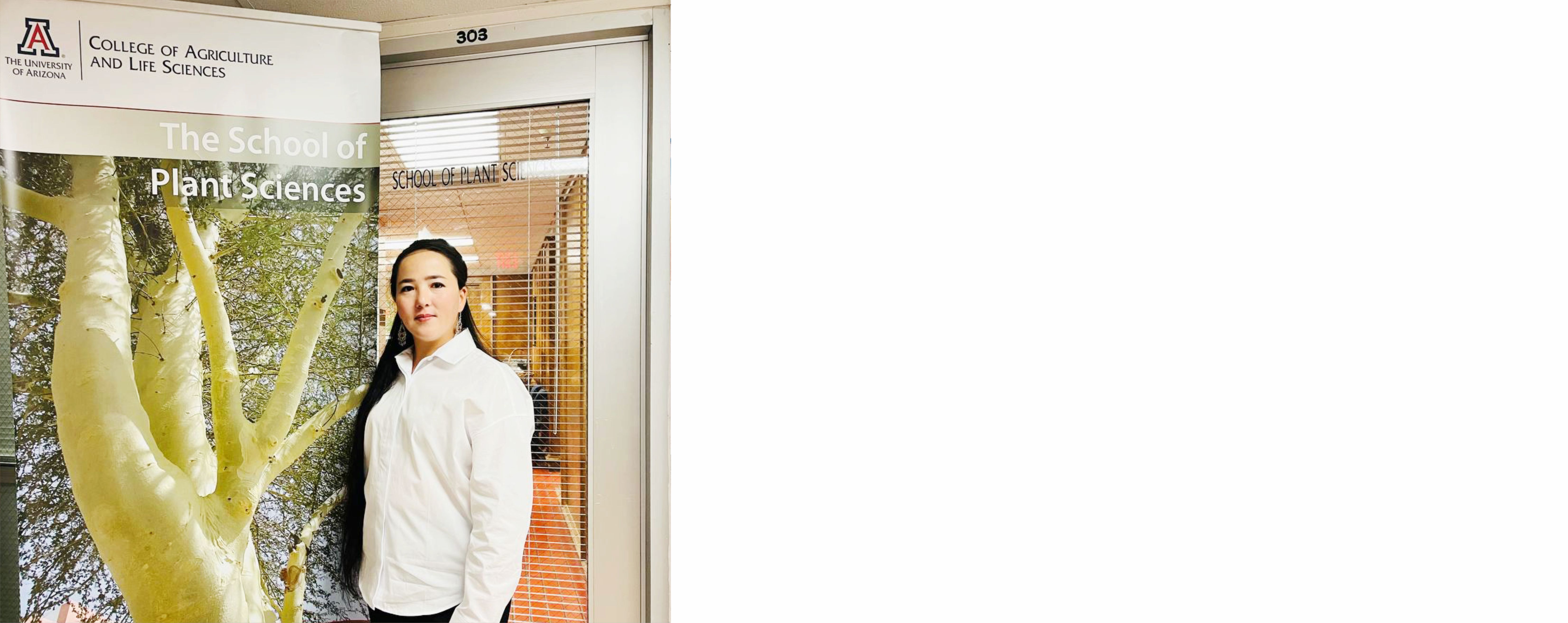Published:
Fariza Mukanova, a fellow of the «500 visiting scholars» program and a research scientist currently undergoing a research internship at the University of Arizona, shared with the press service of the Center for International Programs about her ongoing work on the topic «How Climate Change Affects Plant Diseases».
The University of Arizona, classified under the Carnegie Classification of Institutions of Higher Education as RU/VH: Research Universities, is recognized for its very high research activity.
Fariza Mukanova was born in the village of Bekseit in the Mamlyut district of the North Kazakhstan region. She received her school education there, completed her bachelor's degree in Agronomy at the Manash Kozybayev North Kazakhstan State University, and continued her studies in a master's program at the Omsk State Agrarian University.
Before her internship, she started as a lecturer at the Department of Agronomy and Forestry at North Kazakhstan State University, later becoming the head of the department.
Fariza's research focuses on plant diseases and their detection, developing skills in phytopathological diagnostic methods, understanding how climate change affects plant diseases, and the restoration of pastures and fields. Her methodology includes using laboratory and field data, diagnostic methods in phytopathology, and epidemiological forecasts, followed by analyzing results and comparing them with similar data sets and samples from the region. Scientists at the University of Arizona are engaged in problem-oriented research covering all aspects of sustainable environmental management. The proposed research aims to identify diseases in forage grasses and develop skills in field restoration.

«The results of the research will help you develop skills in predicting and preventing plant diseases that affect natural pasture plants and their restoration, as well as gaining experience. The program supports the development of skills and knowledge in phytopathology and its impact on crops, as well as on pasture restoration. This is reflected in achieving experimental results available at the University of Arizona. Discovering something new requires several years of practical work; my goal is to study modern advanced technologies and further use them in plant research in Kazakhstan», said Fariza Mukanova.
«The program helps ensure that the chosen topic and field of activity are important for implementation. It allows you to establish yourself and demonstrate yourself as a good specialist since personal and professional qualities, learning ability, communication skills, and responsibility for assigned work are determined during the internship. The internship allows you to gain advanced experience in the field of the internship, become a professional ready and able to renew the acquired experience in a specific area. It enables you to effectively implement ideas aimed at improving the quality of education. Overall, this type of training and staff development, such as an internship, is an integral element of professional development for specialists. The ability of an organization to constantly improve the qualifications of its employees in modern conditions is one of the most important factors affecting its success», said the researcher.
«After returning to my homeland, I strive to apply the skills acquired during the internship in my work. The agro-industrial complex is an industry with enormous innovation potential. I want to say, let's develop our country's food security together! During the internship, I learned a lot, and by studying not only the culture of another country but also all its spheres, my outlook on life changes. I am extremely grateful to the Head of State and the Bolashak program for providing us with such a wonderful opportunity!
I advise young people not to be afraid to learn and explore something new; a bright future with Bolashak»! concluded Fariza Mukanova.




Author of the article: Madina Karimova
Press Service of the Center for International Programs